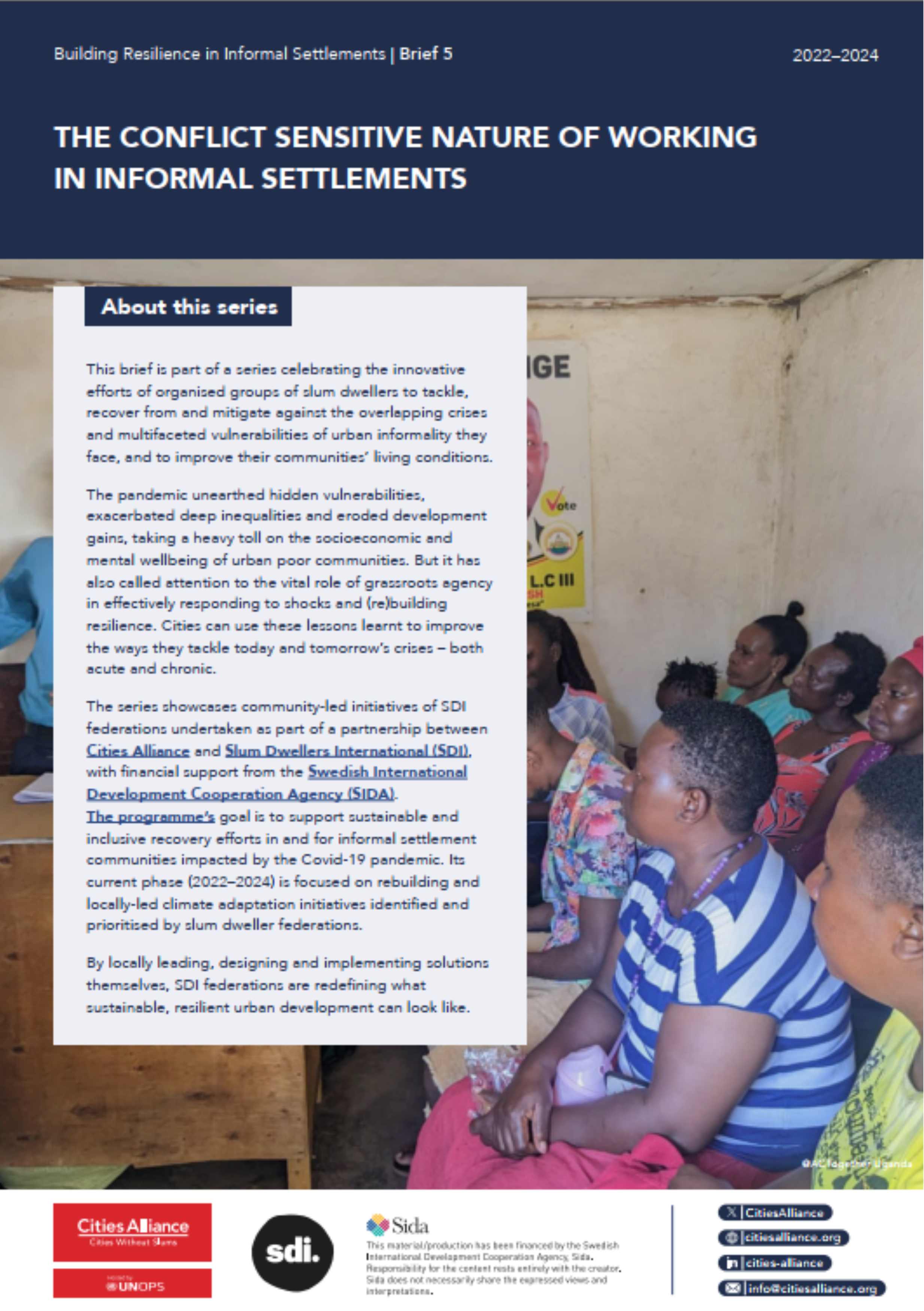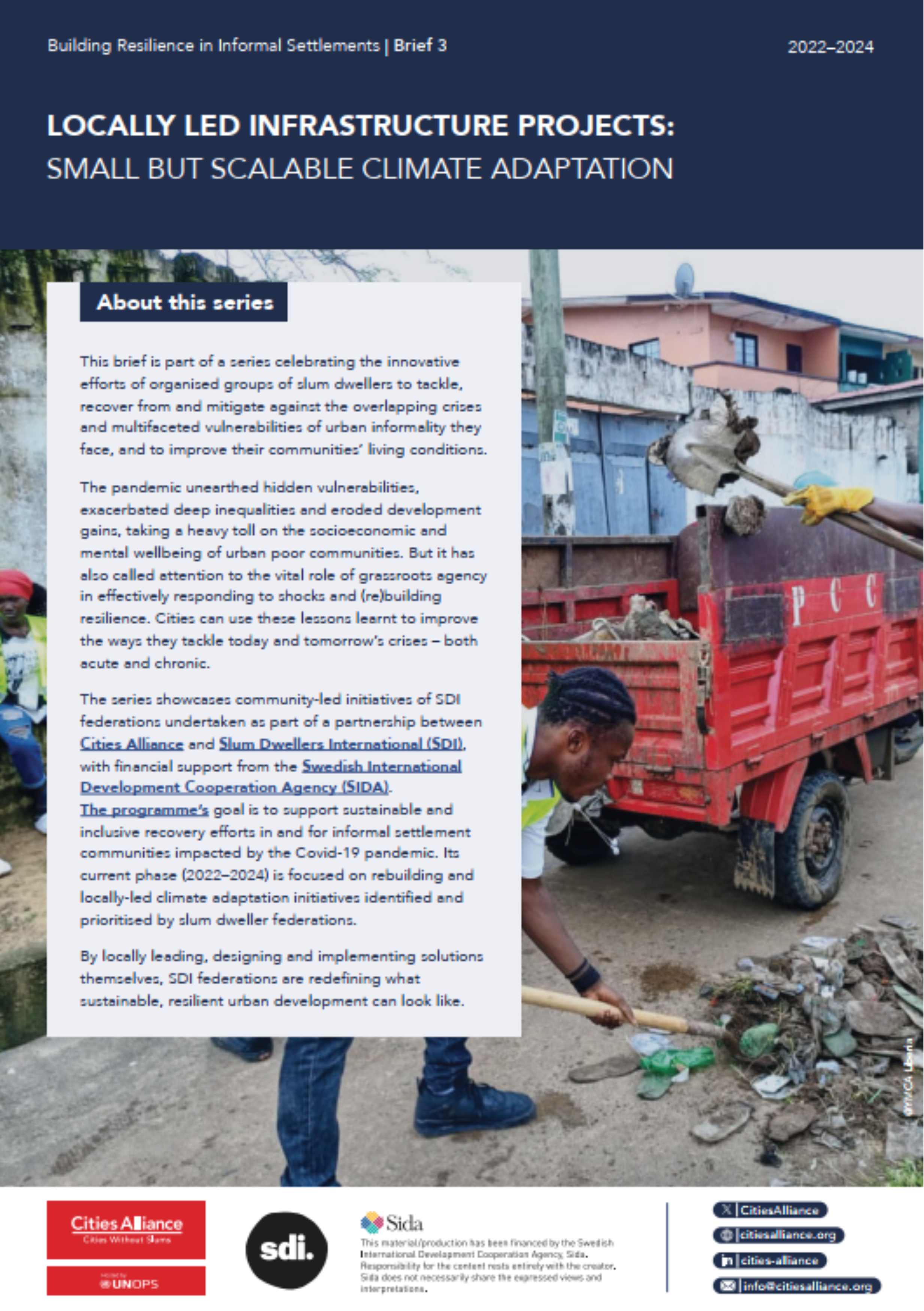- Who We Are
- How We Work
- Regional / Country Initiatives
- Legacy
- Core Themes
- Working Groups
- Portfolio & Results
- Newsroom
- Resources
Community Engagement on Climate Change in Informal Settlements
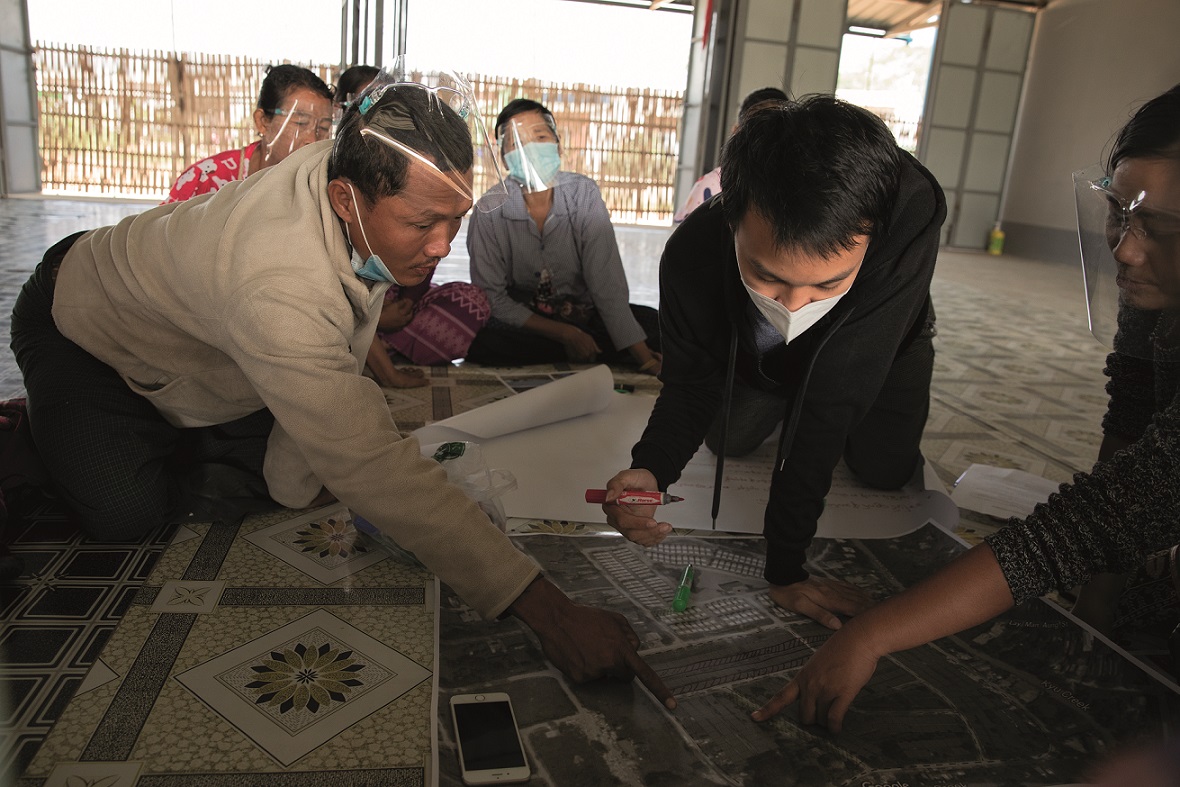
As people around the world struggle to address problems created by climate change, it can be helpful to consider two key questions that affect community engagement: What makes a community? And how can communities build a common ground of understanding for discussing climate change and taking action?

Members of the youth-centric NGO, Tree Adoption Uganda (TAU), addressed these questions early on as they sought to implement a waste management project aimed at reducing flooding, increasing climate resilience and fostering environmental awareness in the informal urban settlement of Bwaise, near Kampala.
In the Bwaise community, runoff from increasingly erratic rainfall was causing widespread flooding, which was made worse by garbage-choked drainage channels. Community members worked together with TAU to develop a project specifically tailored to the local context. The result was a community-centred project leading to a visibly cleaner environment, drainage channels that flow better with less flooding, and the creation of opportunities for women to earn household income. The successful project, which included efforts such as monthly community clean-ups, has inspired a spirit of collective action to solve problems locally and to explore future steps such as planting fruit trees for shade, food and heat mitigation to increase community resilience to climate change.
For us, community in our context, it was about people living in the same area, affected by a common problem.… That’s how we brought them together, because they were all affected by the same problems and effects of climate change.
Angella Kansemiire, Tree Adoption Uganda (TAU)
The TAU project was one of five innovative projects implemented by local organizations in the Greater Horn of Africa and Bay of Bengal regions. The projects were funded through the Cities Alliance Stronger Partnerships: Local Innovations for New Climate Realities in Cities initiative, in partnership with the Swedish Development Cooperation Agency (Sida) and the German Federal Ministry of Economic Cooperation and Development (BMZ).
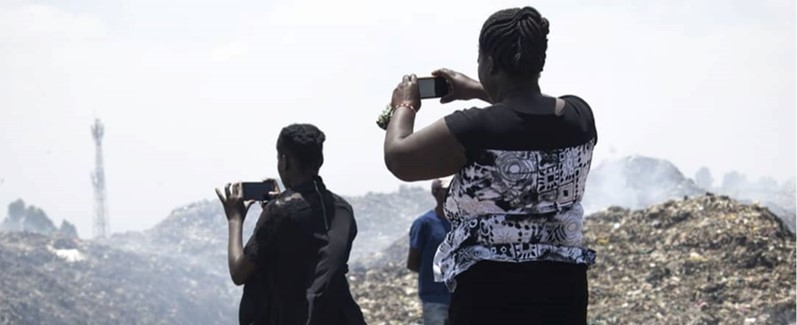
It can be easy to overlook the importance of building a common language and understanding to increase community engagement on climate change and environmental issues. But the Future Yetu project of the Hope Raisers Initiative in Korogocho, a large informal settlement of Nairobi, Kenya, has found that digital storytelling and other creative media can improve communications among stakeholders on all sides.
We're able to bridge the gap between policy, policymakers, and all the strategies and plans that we have and really bring that to the core by really listening to the community's voice. We're not really looking at, you know, your regular avenues of having climate change discourse. We're looking at art, we're looking at music, we're looking at creativity.
Phillip Dinga, Future Yetu
Although members of the Korogocho community recognised the impacts of climate change on their daily lives, they define and describe it differently," explains Elizabeth Wambui of Hope Raisers. "They don’t use the normal terminology and don’t understand it. We had to bring in the county government and the environmental experts so that they could explain to them those terminologies."
At the same time, however, there was also a lack of awareness on the part of the government about the community's struggles and experiences as a result of climate change impacts. "I think the issue here is understanding how it affects us," says Joyce Kiarie, a resident of Korogocho.
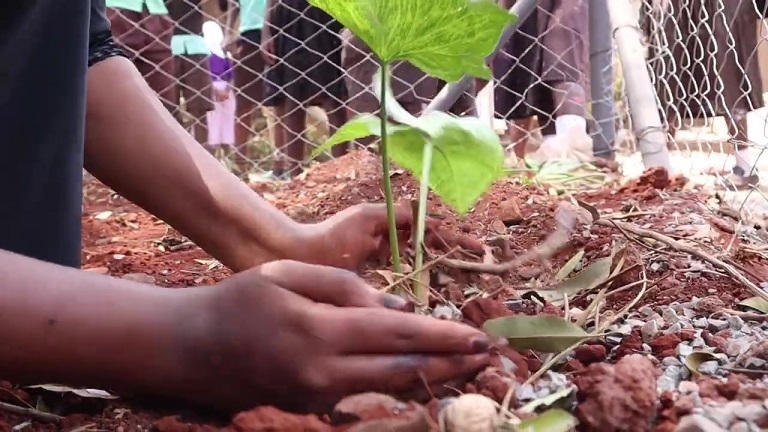
The Future Yetu digital stories project helped government authorities better understand the experiences of the Korogocho community and enabled them to "hear what everybody is talking about," says Elizabeth Wambui, and that "is a very good form of activism.”
Community engagement and better communications among all stakeholders through the Future Yetu project have also yielded additional initiatives for building environmental awareness and increasing climate change resilience, both now and for future generations. The creation of Carbon Sink Pocket Park educational greenspace and the development of a Nairobi Community Adaptation Manifesto are just two examples.
Essentially, we're seeing solutions from the community, and we develop them with the community and for the community.
Phillip Dinga of Future Yetu
In Bangladesh, a project implemented by Badabon Sangho, a women's rights organization, has also demonstrated how improving communications and fostering community engagement can yield unexpected benefits and lessons learned.
The port municipalities of Mongla and Kuakata face increasing threats from torrential rains, flooding and seawater rise. The Badabon Sangho project used digital technologies to help these vulnerable communities adapt to climate change impacts. The project trained youth volunteers in data collection and mapping, using smartphone apps and Open Data Kit (ODK). The data and information were used to create community resilience plans.
But although these digital tools were instrumental to the success of the project, they do not operate in isolation, notes Mamun Rashid, of Badabon Sangho. Their use must be embedded in social mobilisation efforts. For better community engagement, Badabon Sangho combined the use of digital technologies with social mobilisation tools such as training, public meeting with authorities, and public displays, including maps prominently posted on billboards in community neighbourhoods.
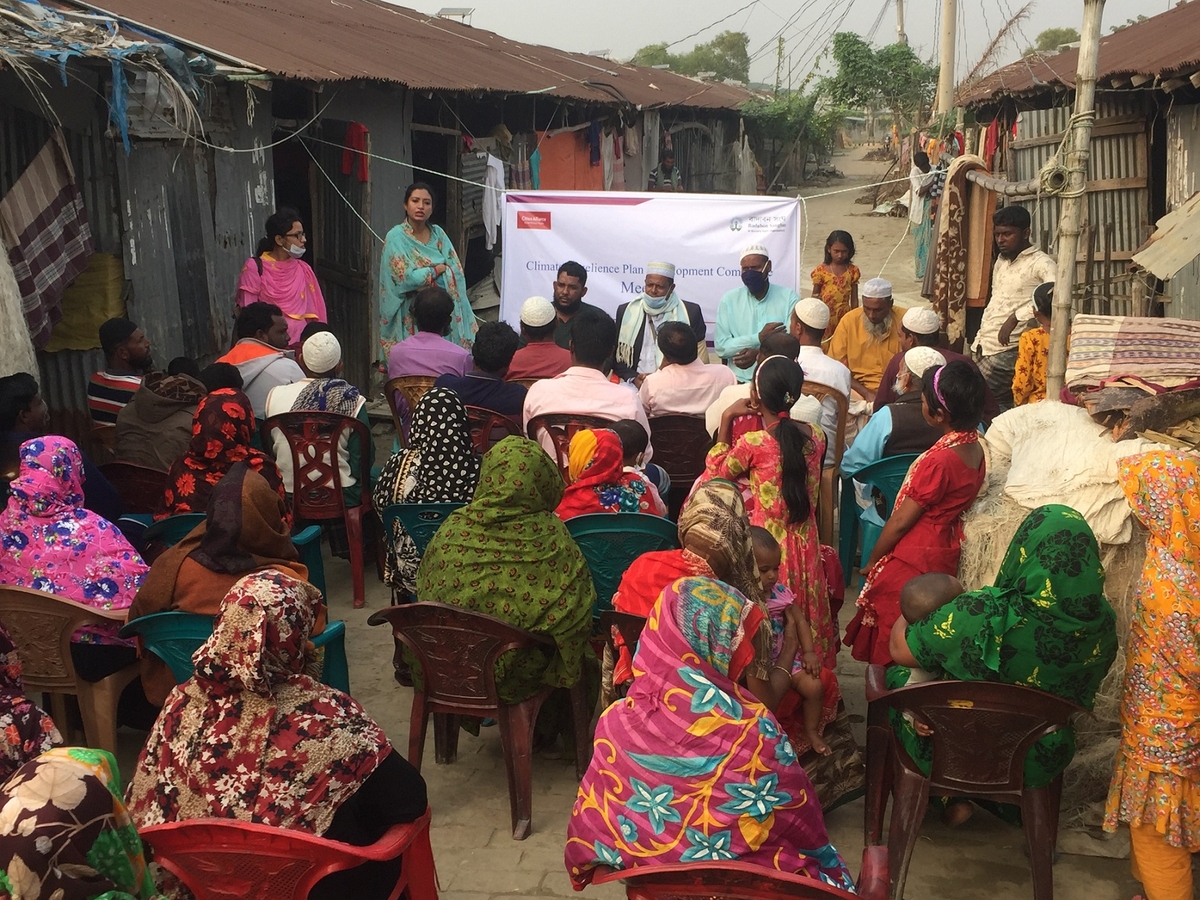
Badabon Sangho's efforts to engage all stakeholders in the community and develop good working relations on climate adaptation are also proving crucial as new crises emerge. Cultivating and nurturing local networks of support and joint action is also part of being prepared for new challenges, such as the COVID-19 global pandemic.
If you have a strong stakeholder platform, you will have more support for climate mitigation. When we mobilize stakeholders, we do it not only on the issue of climate change. For the last two years we have faced several crises of different dimensions. Within the crises these groups and these platforms are coming together, and they are helping each other.
Mamun Rashid, Co-founder of Badabon Sangho

